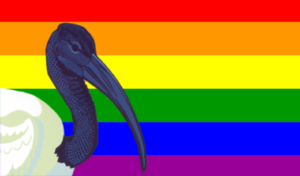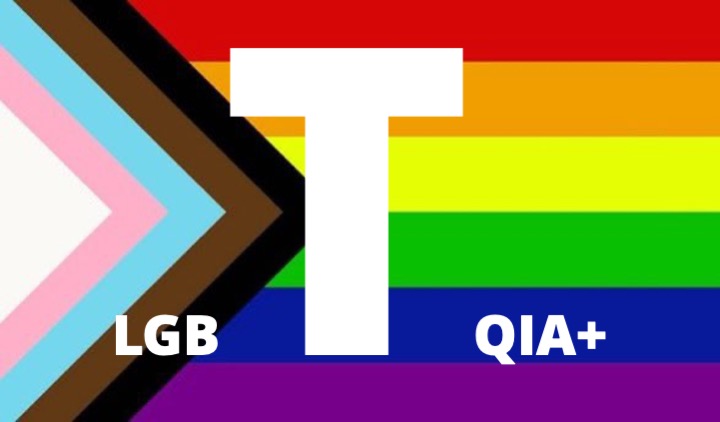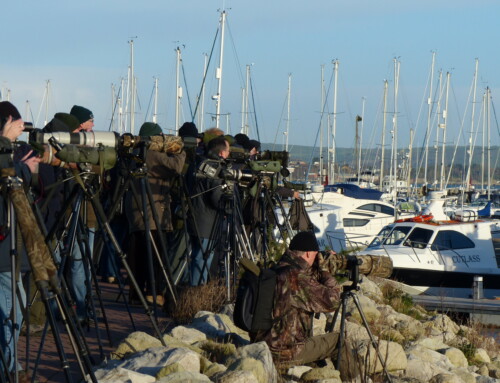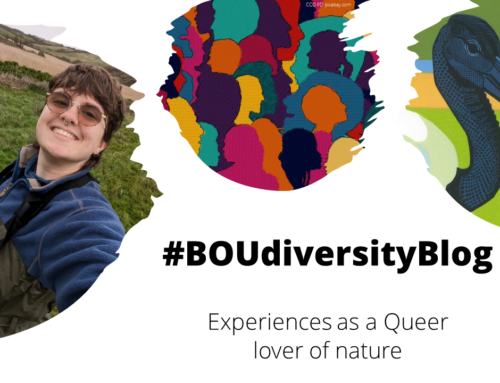 As you may have read in the introduction to our Rainbow Blog series this is the first of our articles to bring the LGBTQIA+ initialism to life.
As you may have read in the introduction to our Rainbow Blog series this is the first of our articles to bring the LGBTQIA+ initialism to life.
These articles allow members of the LGBTQIA+ community to share their personal experience about what it is like to be LGBT in ornithology. These are personal accounts and some articles will be written anonymously at the request of individual contributors.
We start with an anonymous posts and ‘T’ – “a person whose gender is not the same as, or does not sit comfortably with, the sex they were assigned at birth”.
Let me start by saying that the language people use to define themselves varies and it is important to respect the language people use. I identify as a trans man and the words I share here can only reflect my own experience. Other terms people use include transgender, transsexual, gender-queer (GQ), gender-fluid, non-binary, trans woman, trans masculine, trans feminine.
I have had the somewhat unique experience of having studied and worked in conservation and ornithology as a female and as a male person. I have been perceived in my life as a tomboy, a masculine woman, and now, having transitioned 12 years ago basically as a ‘regular’ bloke (by which I mean no one who meets me would have a clue that I was not born male). It’s a strange old world and the different ways people respond and react to you depending on these perceptions has been a fascinating experience!
The process of accepting myself, of becoming me, and the subsequent journey which involved me transitioning from female to male has been like a huge weight being lifted from me. I guess one thing that is key here for me to share with you is that every single trans person’s experience will be different. One thing that I decided early on, whilst completing my PhD in ornithology, was that I wanted to transition very openly. My wonderful supervisor smoothed the way for me, communicating on my behalf with members of staff and the university administration, leaving me to concentrate on the important process of sharing my story with my friends and networks at uni. Plus, as a PhD student, I had started attending conferences, giving talks and building my networks in the wider ornithological world, so it was a complex process to navigate who to tell and how much people needed to know to avoid embarrassment for all concerned when they met me at the next conference or field trip.
Sharing my story resulted in many very personal conversations with a variety of people ranging from dear, trusted friends (very emotional!) through to acquaintances. These latter conversations were slightly more awkward but ultimately heart-warming in people’s acceptance and support. I knew I had the backing of my supervisor and others in my wider network who would stand up for me if anyone did have a problem or was saying things that were less than accepting behind my back. This gave me confidence. Going through a second puberty at nearly 30 was not always fun(!) but the joy in the process was that I was gradually being seen as a guy for the first time in my life. A friend said to me “you’re still you, just more you!”.
I actively welcomed the curiosity of fellow students and staff in their attempts to understand the process, the treatment and my story. Being surrounded by a bunch of ecologists and biologists turned out to be a massive benefit – as they were all fascinated by the changes and how it all worked. In the first year of hormone treatment it was always amusing when a member of the lab returned from a few months in the field to hear their exclamation at how my voice had changed or how different I looked!
Life moves on and I have now worked for a number of years post-PhD without disclosing my trans identity publicly. I feel ‘safe’ that a good number of colleagues and close friends do know my history but for various personal reasons I have not made this information public. Hence this article is written anonymously.
I have been lucky not to have experienced direct discrimination or prejudice, but it has been tough, it has included pain and hurt, as well as confusion for some. The fact that I am not open about my gender-identity now must stem from some need for self-protection, and with that comes with a sadness that I have to censor/edit those little stories or anecdotes from our lives that we share with people as we get to know them better. This happens at work and at conferences and particularly while spending extended periods of time out in the field together when the boundaries between personal life and work are particularly blurred. Many of these anecdotes are quite funny in the light of my transition so it is important for me to state here that the journey has also included a huge amount of laughter and I feel most comfortable in myself when I can don’t have to censor myself and can share openly with the people around me.
For others transitioning will be a much more private journey and there are some simple ways that we can smooth the way for everyone:
- Don’t assume you can tell someone’s gender based on their name, appearance or voice;
- We must all make ourselves aware of the importance of pronouns and the fact that people increasingly use gender-neutral titles and pronouns. The most common gender-neutral pronoun is the singular ‘they’ (they/them/theirs);
- Put your pronouns in your email signature or social media profile. This causes you no harm and it will make other people feel acknowledged and valid;
- Instead of addressing groups of people with binary language such as ‘ladies and gentlemen’, try more inclusive alternatives such as ‘folks’ or ‘everyone’;
- Don’t correct people about which toilet their using(!); and
- If you make a mistake, just apologise and move on, people will feel more awkward if you make a big deal out of an honest mistake.
If you are interested in contributing to our Rainbow Blogs, please get in touch with us via this form which ensures anonymity for those who seek it.
If you want to learn more about LGBTQIA+, then Stonewall is a great place to start.
Blog posts express the views of the individual author(s) and not those of the BOU.
If you want to write about your research in #theBOUblog, then please see here.




